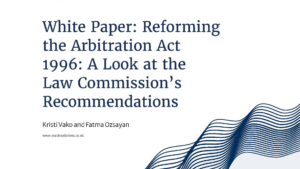Talking Terms
Have you got a question?
An employee’s terms of employment are bound to change in numerous ways during their employment.
The most obvious examples include pay rises (annual or otherwise) and promotions. These changes usually happen by agreement and do not therefore cause legal or practical issues for employers.
On the other hand, there are changes an employer may wish to make that are not so obviously in the employee’s interest.
The starting point is to consider whether the employer’s plans will require the employment contract itself to be changed (called ‘varied’).
There are three main types of terms of employment, which are:
- Express – these are explicitly agreed between employer and employee;
- Implied – these are ‘read into’ the contract in several ways, mainly through custom and practice;
- Incorporated – these terms are those imposed by a law or collective agreement.
If the employer is intending to change a contractual term, there are three possible methods. The best option in legal and practical terms is to obtain an express agreement. This is an agreement with the employee (or employees) directly; or, where appropriate, a binding collective agreement with a trade union.
Always have the agreement (and the contract itself) in writing. Verbal agreements are legally valid but are much more difficult to prove later if challenged.
The second option is to unilaterally impose the change and hope that the employee does not challenge it.
This does leave the employer open to legal claims of breach of contract or even unfair dismissal, depending on the importance of the specific term or terms changed.
Where changes are minor or administrative, continuing to work under the new terms may suffice. Even for more substantial changes, employees will be ‘deemed’ to have consented to the change after a while (unless the employee says they are working ‘under protest’).
Verbal agreements are legally valid but much more difficult to prove later if challenged.
The third option is to terminate the existing employment contract and offer re-employment on the new terms.
If this option is chosen, then the employer will need to be very careful about properly ending the first contract. In some cases, there may also be bad publicity for the company – there have been recent examples in the media due to perceived unfairness.
The employer will need to carry out a careful cost/ benefit analysis of the three options above; the risks do depend somewhat on the specific employees and the employer should take into account what it knows of those it employs.
If the employer chooses the first option (express agreement), it may need to do so as a ‘selling’ exercise. The employer is ‘selling’ the changes to the employees. The following points should be explained and considered:
- Why is the change needed? – frequently, this is the company‘s financial position. If the alternatives are pay cuts or redundancies, the pay cut is obviously more in the employees’ interests. Do not suggest that any decision has been made regarding redundancies.
- Stagger or delay changes – these may reassure employees that there is stability and allow them time to accommodate the new employment conditions.
- Offer incentives – tying a detriment to
a benefit can make it more easily accepted. - Discuss the changes with the employees and make it clear the employer is listening to them, even if it isn’t possible to accommodate all the views expressed.
Disclaimer
The information in this article is correct at time of writing. Due to the scheme continuously evolving, it may have changed after publication.
Book a call back
Share this article
Got a question?
Please complete this form to send an enquiry. Your message will be sent to one member of our team.
Related posts

Unplugged: How Labour’s reforms may impact your evenings
In today’s hyper-connected world, where many employees have email and instant messaging on their mobiles, the boundaries between work and personal life are

Redefining loyalty: Tesco’s brand evolution amidst Legal challenges
Tesco was embroiled in a legal battle against Lidl that reached the Court of Appeal over claims arising from alleged infringement of copyright

Tax Efficient Pension Planning?
With the speculation rife about the new Labour government’s potential changes to pension policies, planning for a tax-efficient retirement is more pertinent than

Reforming the Arbitration Act 1996: A Look at the Law Commission’s Recommendations
Have you got a question? Enquire Now Kristi Vako and Fatma Ozsayan have looked at the new recommendations published by the Law Commission.


